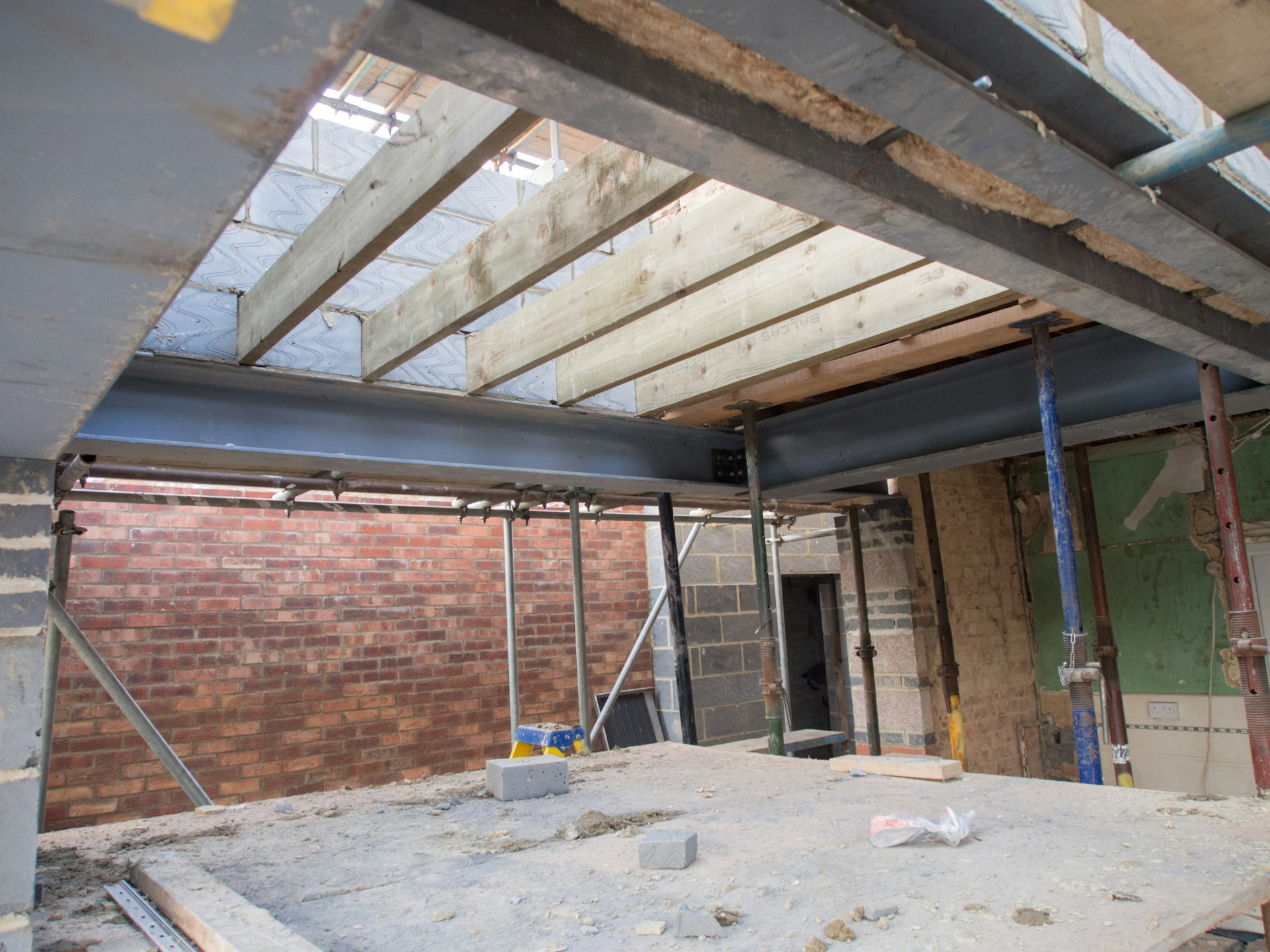How Much Can I Extend My House with Planning?

Estimated reading time 7 minutes
No matter how stunning our house is, we always look for ways to make it bigger or better. The addition of an extension can do wonders for improving the value of the home as well as add some impressive new features you can benefit from. However, when it comes to extensions, the dreaded planning permission often finds a way of scuppering your plans. You may be pleased to know all is not lost though! In many cases, you can extend your home without planning permission and extend it by as much as 8 meters in some cases. However, each extension type has its own specific rules.
Under what is known as permitted development rights, certain alterations can be made to a home without any need for planning permission. It isn’t quite as straightforward as that though so don’t go building that garden playroom, adding a man cave or installing a gym just yet.
Read our guide to find out just how far you can extend your home before you need to submit a planning application.
What are permitted development rights?
Permitted development rights allow you to make alterations to your property without the need to seek planning permission. You’ll need to make sure your planned extension doesn’t do any of the following:
- Cover more than 50% of the area of land around your house.
- Be further than 2m away from the property boundary and have an eaves height of more than 3m.
- Be taller than the highest part of your existing roof and higher at the eaves than the current eaves.
- Be built from materials that are not similar to those your current house is built from.
- Include a veranda, balcony, satellite dish or TV aerial, raised platform or a chimney, flue or vent pipe.
If you can ensure your extension doesn’t compromise these rules, you are within the permitted development rights to build your extension. Let’s investigate a little further though so you can see just how far you can go with your extension plans.
Eligibility to extend a house without planning permission
Your plans for an extension may fit within the permitted development rights but the property itself may not be eligible.
- If the home has been extended in the past, either by you or previous owners, you’ll need to seek planning permission. This applies to extensions on the property that were incorporated as far back as 1st July 1948.
- If your home is a listed building or sits on designated land, you may have forfeited your rights to permitted development rights. This would require the ability of a solicitor to help you discover what you may be allowed to do.
- If you live in a flat, you’ll need planning permission regardless of the extension type you may wish to add. Permitted development rights only apply to houses.
What are the benefits of adding an extension without planning permission?
Extending your house without seeking planning permission can be a great way to get something done that you may have otherwise been putting off. Without being fully aware of planning rules, you’ll likely have thought about the extension but not gone much further with it. The concern of costs, paperwork and more probably holds you back a little. Extending your home within the permitted development rights and not needing to seek planning permission comes with a few benefits worth considering.
- Time saving: Applying for planning permission for an extension can be a slow process with weeks for approval to come through. If you build a permitted extension without planning permission, you can enjoy this new addition to your home much sooner.
- Money saving: Just as planning permission takes time, it also takes money. Save that cash and put it towards enhancing your extension.
- Increased property value: The addition of an extension can adds some great value to your home. As much as 15% according to the Federation of Master Builders. This can see a great return on your investment when you come to sell. And, without having to spend money on planning, you are already in a better position financially!
How much can you extend a house without planning permission?
Depending on the type of extension you wish to add, you can increase the space your property fills quite well. At present, development laws in the UK state that you can add certain extensions without planning permission, however, they must be built within strict guidelines:
Single-story rear extension:
If you look to add a single-storey rear extension to your home, you won’t need planning permission unless it exceeds six meters on a semi-detached or terraced property or eight meters for a detached property. Regardless of property type, the maximum height of a single-storey extension is four meters.
Double-storey rear extension:
If your double-storey extension doesn’t exceed three meters from the original house, you won’t require any planning permission. You must also make sure that the height doesn’t exceed three meters.
Front of house extensions:
You can extend the front of your house without planning permission if it is a single storey, isn’t more than three meters out from the original house and isn’t more than half the width of the original house or front into the road.
Garden rooms/outbuildings:
Should you look to add a garden room or other type of outbuilding to your home, you can bypass the need for planning permission as long as the building does not exceed four meters in height and covers no more than 50% of your garden space.
Conservatories
If you are looking to add a conservatory to your home, you must keep it less than the house's width and not allow it to pass beyond the front of the house.
Loft conversions
A loft conversion is a great way to add an additional bedroom or leisure space to your home, but you’ll need to keep within the rules to avoid the need for planning permission. If you own a detached property, you won’t be able to exceed 50 cubic meters when building a loft extension. If you live in a terraced or semi-detached home, you can use up to 40 cubic meters before needing planning permission.
What if I extended my house without planning permission?
If you opted for an extension and chose not to seek planning permission, you could find yourself falling foul of financial penalties. You can occasionally successfully apply for retroactive planning permission. This is where you seek the permissions after the work has started and you may not have been aware permission was needed. This can be risky as if your application is turned down, you will be asked to put things back to how they were!
If you are selling your home and have not obtained planning permission, it may be wise to seek out an indemnity insurance policy for the potential buyers of your home. This will protect them from any legal issues that may arise after you have sold the house to them. Whilst not your responsibility, it may help a sale go through, especially if the buyer is approaching an offer with trepidation due to your negligence.
Should you be looking to sell your house fast, either due to a change in circumstances, or a desire to upgrade, speak to Bettermove. We can facilitate the fast, fee-free sale of your home in as little as seven days. With no worry of chain breaks, costly expenses or delays, you can sell your house for free, quickly. Our network of cash house buyers is waiting and ready to make a no-obligation offer, contact us today to find out more.



